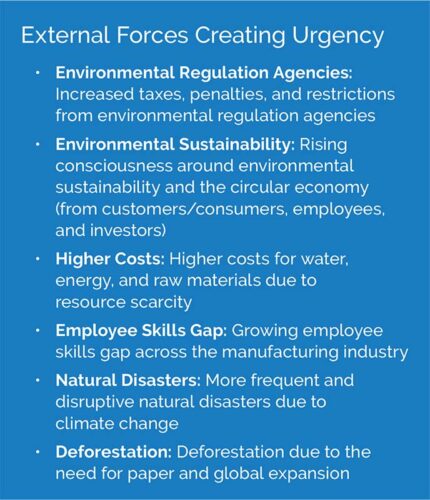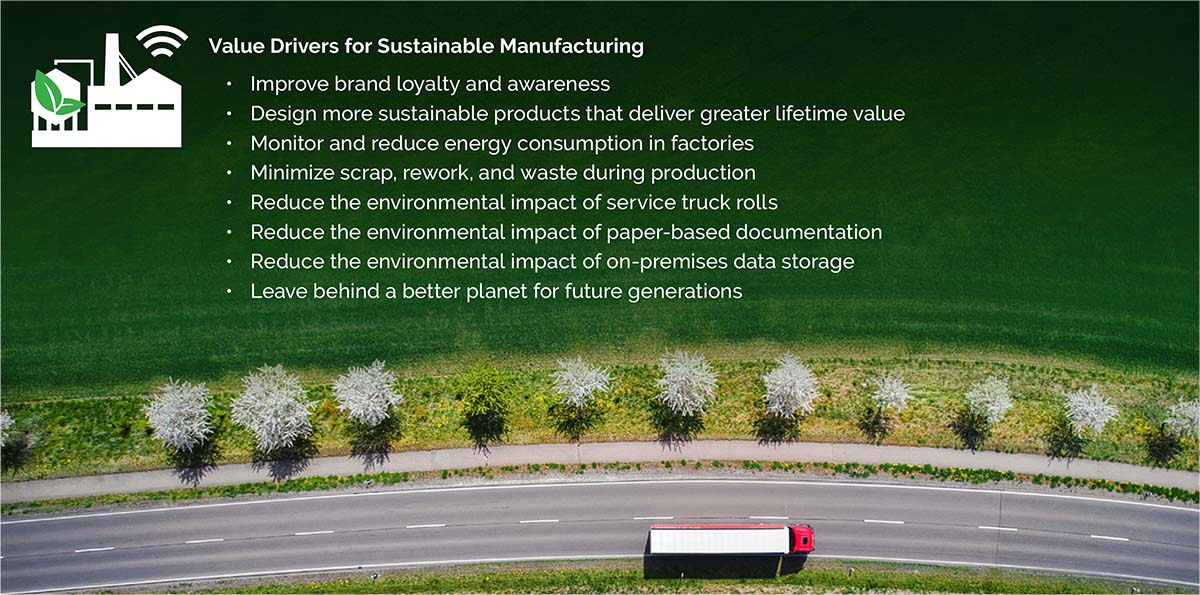
The shift in consumer buying, where more consumers are willing to pay more for environmentally conscious products, underscores the need for manufacturing companies to enhance their commitment to responsible business practices using technologies that support more sustainable product design and development. Companies across industries have started to lead with purpose, including leveraging the circular economy as a greater opportunity to drive growth and competitive agility.
Global production is a major source of waste, pollution, and greenhouse gas emissions that have a detrimental effect on the environment by accelerating climate change and deforestation. Consumers, investors, government, and employees continue to put additional pressure on manufacturers to lessen the environmental footprint of their operations and products as the effects of climate change are becoming widely recognized.
The growing volume of waste from consumer electronics products is making global headlines and ultimately influencing consumer buying behavior. Customers and companies alike seek electronic devices that are built with environmentally conscious materials, offer a low carbon footprint, and can be recycled or disposed of safely with minimal impact on the environment.
Today’s leading product manufacturers are responding by adopting a greener approach to product development using modern cloud solutions like product lifecycle management (PLM). Cloud services are inherently more sustainable than on-site IT infrastructure. Public cloud data centers consume energy more efficiently and they can consolidate energy demand from multiple organizations.
Making sustainability a key consideration early in the product lifecycle can create a significant downstream impact. Organizations that prioritize sustainability in this way are realizing a variety of business benefits such as faster growth, improved margins, greater shareholder value, reduced environmental impact, and increased brand trust.
The greatest challenges to implementing sustainability practices are rarely in software technologies but in business cultures that resist change.

Sustainable Innovation Drives Business Growth and Helps Meet Demand
Global Environmental Initiatives
Business and Environmental Benefits of the Circular Economy
Transforming Product Design for Circular Economy
Environmental Compliance in the U.S. and Europe
Cloud PLM as a Long-Term Green Business Strategy
Building More Sustainability Into Product Development with Arena PLM